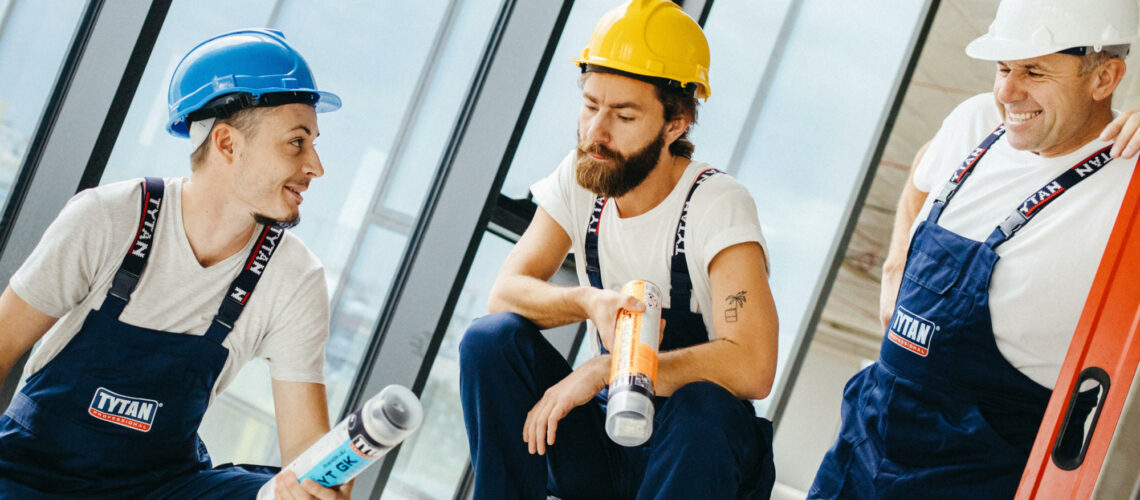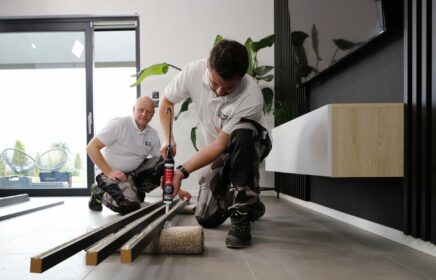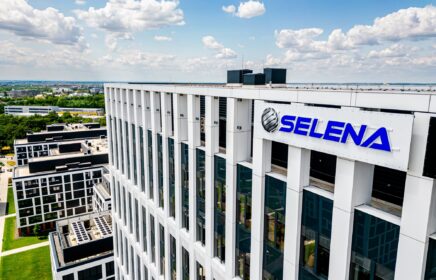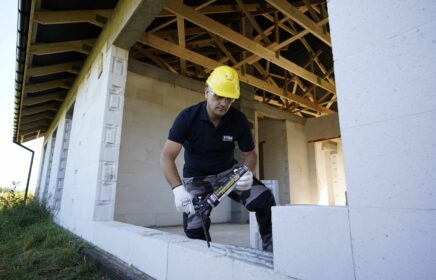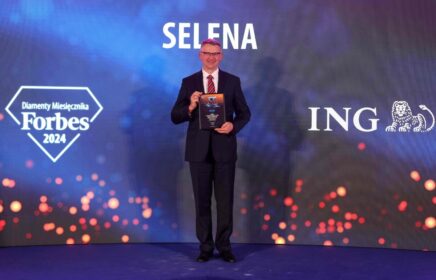In the first half of July, the European Parliament adopted new regulations forming part of the European Green Deal designed to increase energy efficiencies. Key to the achievement of this goal is the improvement of thermal performance of buildings. The MEPs’ decision coincides with the season when property reconstruction and renovation projects are typically undertaken. For many years now, Selena FM, a global manufacturer of construction chemicals, has been marketing products and systems that contribute to improving the energy efficiency of buildings.
According to the data contained in the Long-Term Building Renovation Strategy adopted by the Polish Council of Ministers in February 2022, there are 14.2 million buildings in Poland, 40% of which are single-family residential buildings. A significant part of them is characterized by low energy efficiency and will require thermal upgrading in the following years. The Strategy envisages that by 2050 an estimated 7.5 million thermal upgrade projects will be carried out, including 4.7 million involving thorough upgrades. Taking into account EU regulations, directives and the overarching goal of the European Green Deal, which is to make the construction sector climate neutral by 2050, thermal upgrades are becoming a critical part of this vision.
This, in turn, is related to the topic of energy efficiency, which is gaining urgency in the context of environmental changes and the crisis in commodity markets. A survey carried out by the Center for Public Opinion Research (CBOS) in March this year shows that Poles are more and more focused on energy prices. 63% of respondents (12 percentage points more than in 2021) have said that this is one of the key aspects to be considered in the energy transformation process.
“Energy transition is being actively addressed by the European Union as one of the key challenges of the future. It is a strategic part of the policy aimed at achieving and promoting EU autonomy in the field of energy, as well as making this region of the world safe and sustainable. The adopted directives lay down the roadmap, while it is up to governments and businesses to use their available tools to attain the defined objectives. This is also very important in the context of thermal upgrading, a topic that is very close to us as a construction chemicals company, says Roman Owczarek, Director of the WFCC (Walls, Facades & Chemical Constructions) Division at Selena Group.
Customized solutions
There are many thermal upgrade solutions on the market. However, it is important to ensure they are tailored to specific needs. Only by meeting the relevant requirements will we be able to talk about successful thermal upgrading, which ultimately is meant to lead to improved energy efficiency, reduced costs, user comfort and appropriate microclimate in the interiors. In response to those challenges, Selena has developed a number of systemic thermal upgrade solutions for both new and existing buildings, including Tytan Professional® Thermo Pro.
“Poorly insulated, leaky buildings increase the cost of thermal energy, and at the same time emit more pollutants into the environment. Today, thermal upgrading is one of the essential elements of sustainable construction. But it should be carried out competently, using appropriate materials. We wanted to make this process easier for users by composing – under the supervision of experts – sets of our products dedicated to specific projects. These include a wide range of solutions that can be selected as needed to fit the requirements of individual buildings,” says Karol Bednarczyk, Technical Director of the WFCC Division at Selena Group.
The sets offered by Selena include e.g. primers, plasters, adhesives or mesh. In response to user needs, six options have been created so far to facilitate thermal upgrades based on polystyrene or mineral wool: breathable/non-flammable, self-cleaning, commercial, universal, economic and decorative. These packages will cater to any building, regardless of the available budget, which can be crucial especially in the case of self-build projects.
Roman Owczarek emphasizes: “The sealing foams and foam adhesives, as an alternative to traditional cement adhesives, are an undisputed advantage of our offering. We carefully follow the current trends in environmental protection and sustainable construction, and consequently – in responsible design and execution, and we are confident that our products are one of the best solutions you can have when undertaking thermal upgrade projects. In addition to the increased demand for thermal upgrades, we also note that building owners are spending their funds more prudently and need technologies that guarantee even higher efficiency. They find it critical to reduce costs both during the construction process and in the subsequent years of building operation. There is also a growing awareness of environmental matters, which has a major impact on decisions. Polyurethane technologies, in addition to ensuring a technical standard, warrant the highest environmental parameters, as evidenced by the environmental declarations we have. The key distinguishing feature of the technology is that it ensures greater efficiency in the construction and operation of buildings. In this way, it speeds up construction processes, lower energy and water consumption, significantly reduces the carbon footprint and strongly improves the energy efficiency of buildings.
Investment support
Thermal upgrading is a project that requires significant outlays. The specific budget will depend on the scope of works, the size of the building and its current technical condition. For this reason, it is important that the money spent can ensure both quick payback and long-lasting effect.
High expenditures should not discourage users from undertaking a renovation project, as thermal upgrades are supported by a range of government grant programs, for example, and will probably be supported as part of the new EU financial perspective. It is worth looking into the available options. Today, these include funds from the Thermal Upgrade and Renovation Fund – a special TERMO program, as well as the new version of the Clean Air Program launched in January 2023.
The construction sector is heavily impacted by the EU activities focused on reducing energy consumption and greenhouse gas emissions. We can talk about a real revolution in the sector when we take into account the number of technological, green and energy-saving solutions. This is particularly important in the context of the fact that construction accounts for about 40% of the total energy consumption in the EU. In order to have an appreciable effect moving forward, the green energy transition requires the partnership and cooperation of many entities and sectors; including business, like Selena Group and its products that meet the high standards of solutions that improve the energy efficiency of buildings.
